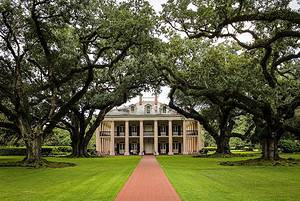The Role of Feng Shui in Real Estate in Mumbai
- Welcome to our comprehensive blog post on the role of Feng Shui in real estate in Mumbai. If you’re interested in creating a harmonious and positive living environment, incorporating Feng Shui principles into your real estate decisions can be beneficial.
- In this guide, we will explore what Feng Shui is, discuss its significance in real estate, provide tips for applying Feng Shui in your home, share examples of Feng Shui-inspired properties in Mumbai, and address frequently asked questions.
- Let’s dive into the world of Feng Shui and discover how it can enhance your real estate experience in Mumbai.
What is Feng Shui?
- Feng Shui is an ancient Chinese practice that seeks to harmonize individuals with their environment.
- It is based on the belief that the arrangement and orientation of objects and spaces can influence the flow of energy, known as “Qi,” and impact various aspects of one’s life, including health, wealth, and relationships.
- Understanding Feng Shui: The Art of Harmonious Living
- Feng Shui, pronounced “fung shway,” is a venerable practice that dates back over 3,000 years. It draws its inspiration from the Taoist philosophy and Chinese cosmology, seeking to harmonize the flow of vital life force energy, known as “Qi,” within the spaces we inhabit. The term “Feng Shui” itself translates to “wind-water” in English, reflecting the fundamental elements that shape the practice.
- At its core, Feng Shui is about achieving balance and harmony between individuals and their environments. It is based on the belief that the arrangement of objects, colors, shapes, and structures can influence the flow of energy, impacting various aspects of our lives, including health, wealth, relationships, and overall well-being.
- By aligning our surroundings with the principles of Feng Shui, we aim to create an environment that nurtures positive energy and fosters a sense of equilibrium.
What are The Principles of Feng Shui?
- Feng Shui is guided by a set of principles that govern the arrangement of spaces and objects to optimize energy flow. While there are various schools and approaches within Feng Shui, some core principles remain consistent:
- Bagua Map: The Bagua Map is a fundamental tool in Feng Shui that divides a space into nine sections, each corresponding to different aspects of life, such as career, relationships, wealth, and health. By mapping these areas onto a floor plan, practitioners can identify and enhance specific areas of their lives.
- Five Elements: The Five Elements (Wood, Fire, Earth, Metal, and Water) form the foundation of Feng Shui. Balancing these elements within a space is believed to bring about harmony and vitality.
- Yin and Yang: The concept of Yin and Yang represents the dualistic nature of existence. Achieving a harmonious balance between these opposing forces is essential in Feng Shui to create a sense of equilibrium.
- Flow of Qi: The unobstructed flow of Qi is vital for a harmonious environment. Clutter, obstacles, and blocked pathways can disrupt the flow of energy, leading to imbalances in various areas of life.
- Placement and Arrangement: The positioning of furniture, decor, and structures within a space is meticulously considered to enhance positive energy. For instance, the placement of a bed, the orientation of a desk, and the arrangement of plants can all influence the Qi.
Feng Shui and Real Estate: A Symbiotic Relationship
- The realm of real estate, with its diverse array of properties and designs, provides a fertile ground for the integration of Feng Shui principles. More than a passing trend, Feng Shui has gained recognition as a significant factor in real estate, impacting both buyers and sellers in various ways.
- Enhancing Property Value: Properties that are designed and arranged according to Feng Shui principles can exude a sense of balance and harmony that appeals to potential buyers. The favorable energy flow within a space can create a positive first impression, potentially increasing the perceived value of the property.
- Aiding in Quick Sales: Feng Shui conscious homes are often seen as inviting and energetically appealing. When a property resonates with a potential buyer on a subconscious level, it can lead to quicker sales and transactions.
- Creating Positive Energy: Feng Shui can infuse a property with positive energy, making it a welcoming and nurturing space for its occupants. This can result in satisfied and content residents, which, in turn, can contribute to the overall atmosphere of a neighborhood or community.
- Supporting Productive Work-spaces: In the realm of commercial real estate, Feng Shui can play a role in creating work environments that promote productivity, creativity, and employee well-being. A well-balanced and harmonious workspace can have a positive impact on employee satisfaction and engagement.
- Elevating Investment Opportunities: Savvy real estate investors are increasingly considering Feng Shui principles when evaluating potential properties. A property that aligns with these principles can hold the promise of long-term prosperity and growth, making it an attractive investment opportunity.
Applying Feng Shui in Real Estate
- Integrating Feng Shui principles into real estate involves a thoughtful and strategic approach. Here are some ways in which these principles can be applied:
- Optimal Property Selection: Buyers can seek properties that align with their personal aspirations and goals, as reflected in the Bagua Map. For instance, those looking for career advancement might prioritize the “Career” area of the Bagua when choosing a property.
- Staging and Interior Design: Sellers can strategically stage and design their properties to enhance positive energy and create an inviting atmosphere. This could involve arranging furniture to encourage the flow of Qi, using color schemes that harmonize with the Five Elements, and incorporating elements of nature.
- Landscaping and Exterior Design: The principles of Feng Shui extend beyond interior spaces. Landscaping and exterior design can also influence the energy flow of a property. Well-maintained gardens, water features, and the orientation of the property itself can all contribute to a harmonious environment.
- Consulting Feng Shui Experts: For those seeking a comprehensive application of Feng Shui in real estate, consulting with experienced Feng Shui practitioners or experts can provide valuable insights. These professionals can offer personalized guidance based on the specific goals and intentions of the buyer or seller.

Significance of Feng Shui in Real Estate
- In real estate, Feng Shui plays a significant role in creating a balanced and positive living space.
- By incorporating Feng Shui principles, homeowners and property developers can optimize the energy flow within a property and create an environment that promotes well-being and prosperity.
Tips for Applying Feng Shui in Your Home
- Here are some tips for applying Feng Shui principles in your home:
-
- Clear Clutter: Clutter disrupts the flow of energy. Keep your living space clean and organized to promote a harmonious environment.
- Balance Elements: Incorporate a balance of the five elements—wood, fire, earth, metal, and water—in your home decor. Each element brings different qualities and energies, and a harmonious combination can enhance the overall energy flow.
- Maximize Natural Light: Allow natural light to enter your home as it represents positive energy. Use sheer curtains or blinds to regulate the amount of light while maintaining privacy.
- Create a Welcoming Entrance: The entrance to your home is crucial in Feng Shui. Ensure it is well-lit, clean, and inviting to attract positive energy into your space.
- Position Furniture Thoughtfully: Arrange furniture in a way that promotes a smooth flow of energy. Avoid blocking pathways and ensure comfortable seating arrangements that encourage conversation and connection.
Examples of Feng Shui Inspired Properties in Mumbai
- Mumbai is home to several properties that have been designed with Feng Shui principles in mind. Here are a few examples:
-
- The Zen Residences: This residential complex in Mumbai incorporates Feng Shui principles in its design and layout. The buildings are positioned to maximize natural light, and communal spaces are carefully designed to create a sense of tranquillity and balance.
- The Feng Shui Villa: Situated in a prime location, this villa follows Feng Shui principles in its architectural design and interior layout. The placement of rooms, furniture, and landscaping elements is done in a way that optimizes the energy flow.
- The Harmonious Heights: This high-rise apartment building is known for its adherence to Feng Shui principles. The entrance, lobby, and individual units are designed to create a harmonious and balanced living environment.

Frequently Asked Questions (FAQs)
- Q1: Can I apply Feng Shui principles to any property?
- Yes, you can apply Feng Shui principles to any property, regardless of its size or location. The goal is to create a harmonious living environment by optimizing the flow of energy.
- Q2: How long does it take to see the effects of Feng Shui in a property?
- The effects of Feng Shui can vary for each individual. Some people may experience immediate positive changes, while for others, it may take time to notice the subtle shifts in energy. Patience and consistent application of Feng Shui principles are key.
- Q3: Do I need to hire a Feng Shui expert?
- While consulting a Feng Shui expert can provide deeper insights and personalized recommendations, you can also begin incorporating basic Feng Shui principles on your own. Start by de-cluttering, balancing elements, and creating a harmonious space.
Conclusion: Embracing Harmony and Balance
- Incorporating Feng Shui principles into your real estate decisions in Mumbai can bring positive energy, balance, and harmony into your living environment.
- By following the tips provided and exploring the examples of Feng Shui-inspired properties, you can create a space that nurtures well-being and supports your goals and aspirations. Embrace the power of Feng Shui and enhance your real estate experience in Mumbai.
- Feng Shui, with its ancient wisdom and timeless principles, has found a meaningful place within the realm of real estate. Its capacity to transform living spaces into vibrant havens of positive energy and balance is a testament to its enduring significance.
- Whether you’re a buyer, seller, or investor, embracing the essence of Feng Shui can elevate your real estate experience, paving the way for a harmonious and prosperous journey in the world of property.
- As the real estate landscape continues to evolve, the integration of Feng Shui stands as a testament to our innate desire for connection, balance, and well-being.
- By harmonizing our living spaces with the principles of this ancient practice, we not only create homes but cultivate sanctuaries that nurture our bodies, minds, and spirits.
- So, as you embark on your real estate endeavors, consider the profound impact that Feng Shui can have – a journey towards a life imbued with harmony, balance, and positive energy.
#FengShuiRealEstate #MumbaiProperty #EnergyFlowInRealEstate #HarmoniousSpaces #RealEstateTips #FengShuiConsultants #PositiveEnergyHomes #PropertyMarketMumbai
Join Our Newsletter
To stay up-to-date on the latest news and information regarding Immigration to the Caribbean Islands, European Union, UK, USA, Canada and Real Estate Projects in India and Globally. ☑ I accept and agree Privacy Policy.



